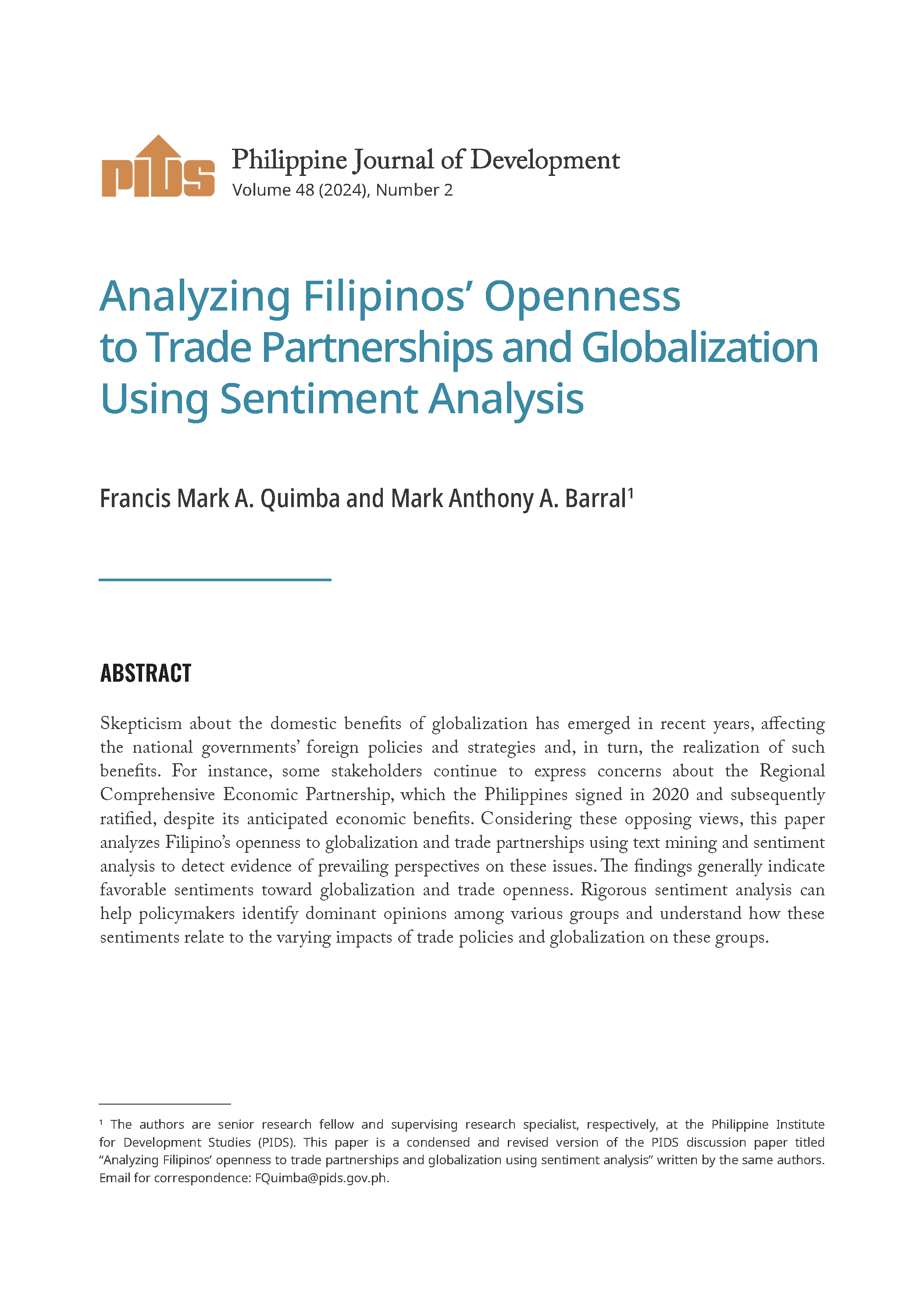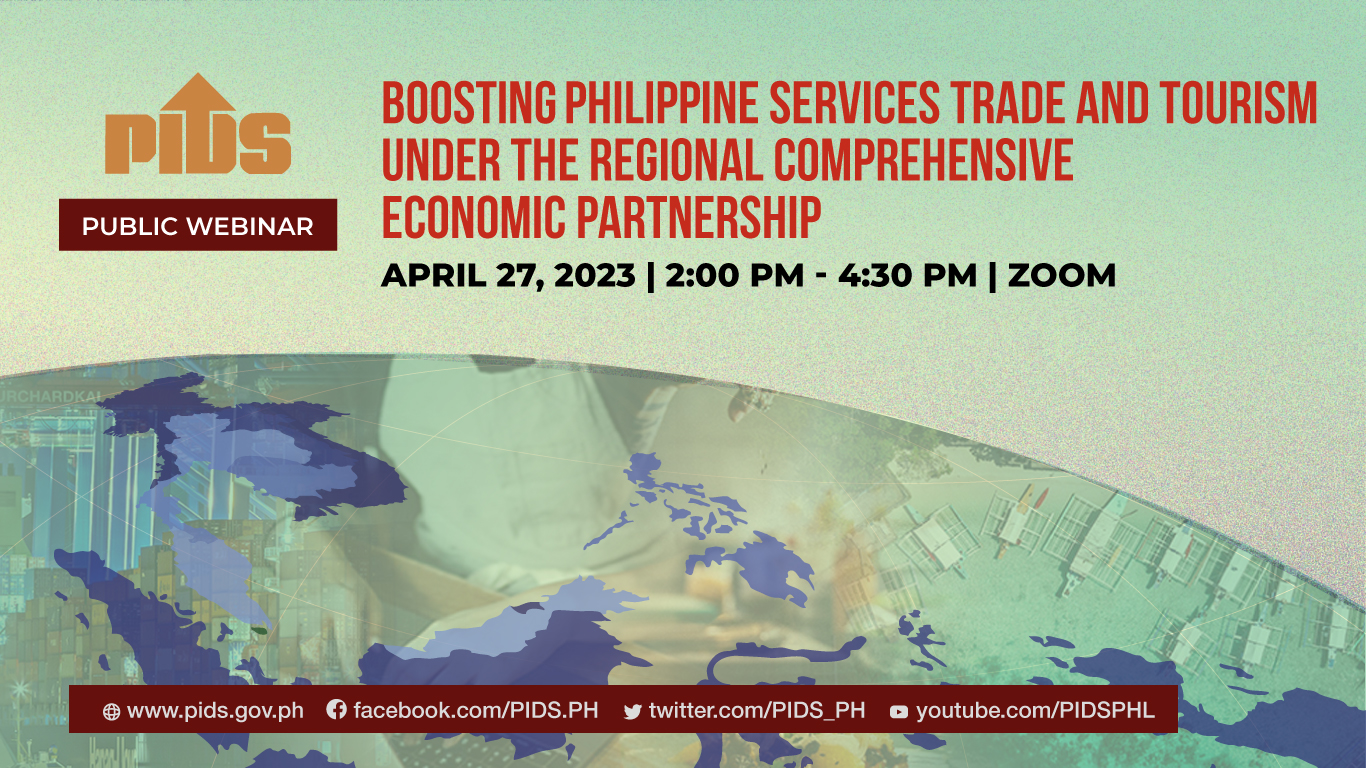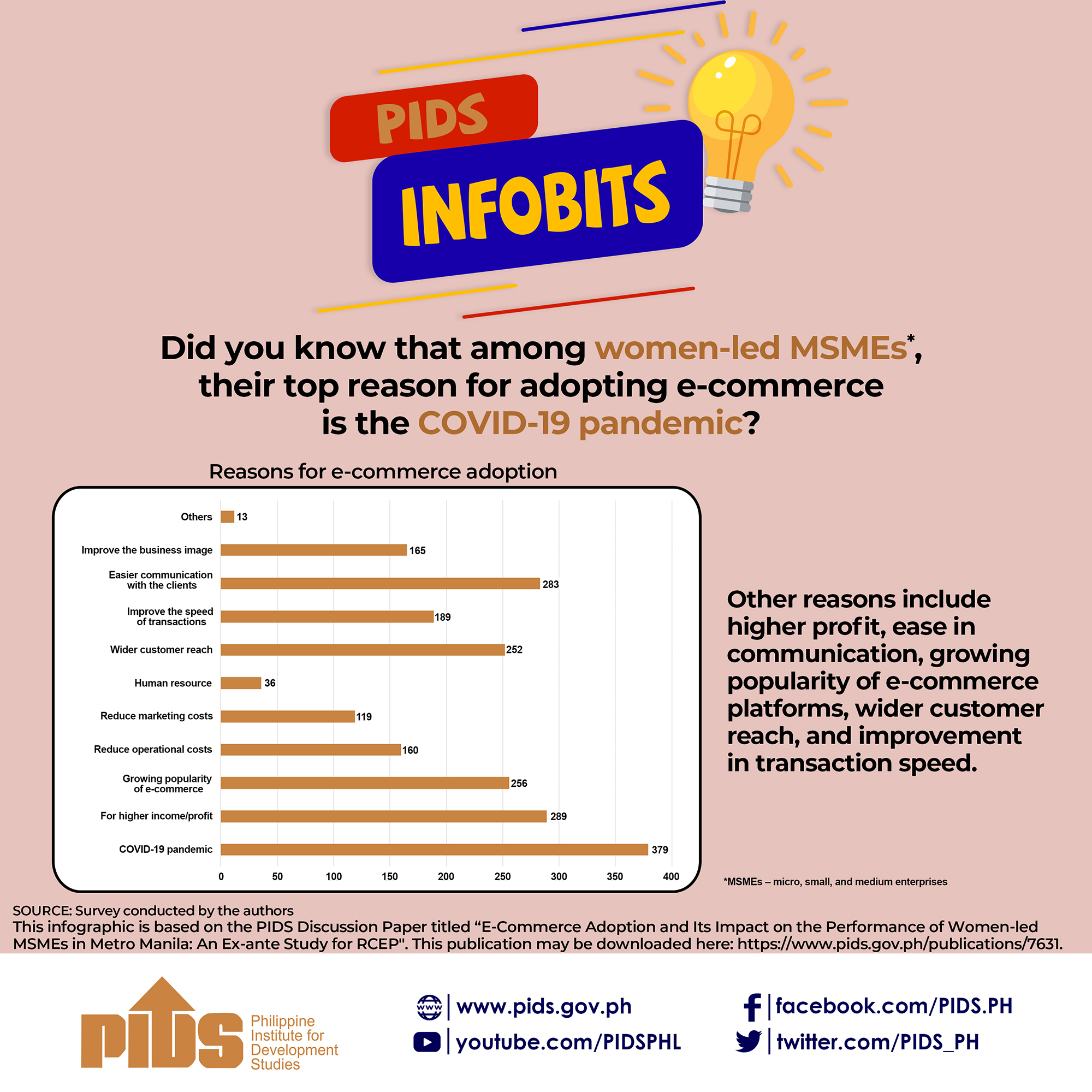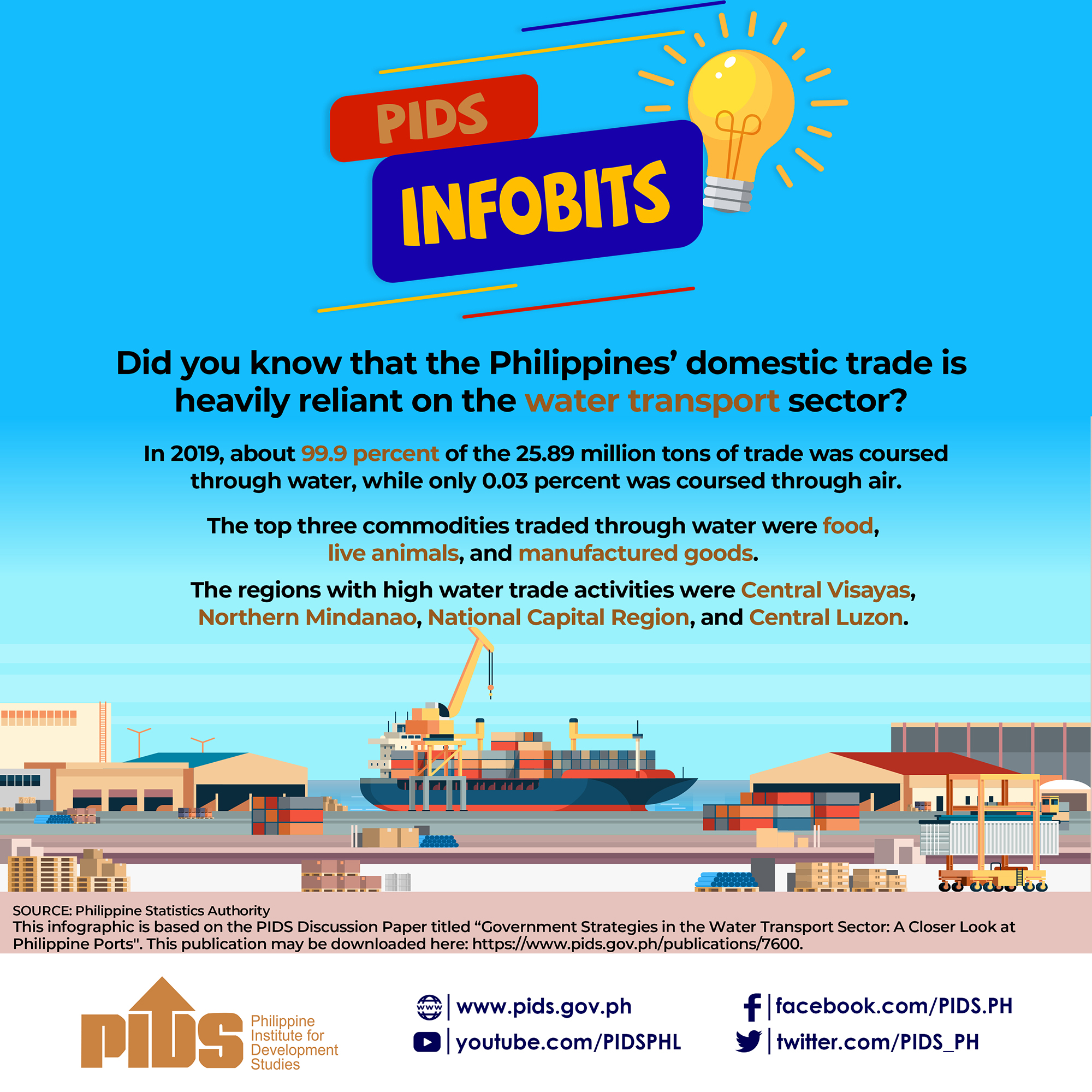
The Philippines needs to identify and develop key areas in its services sector to succeed in trade negotiations.
This was according to Philippine Services Coalition Co-chair and A. Magsaysay, Inc. President and Chief Executive Officer Doris Magsaysay Ho, who served as a discussant in a webinar recently organized by the Philippine Institute for Development Studies (PIDS).
“What we are missing are the big [and] audacious ideas of what products and services we are selling, which is the fundamental reason why economies jump into free trade agreements,” Ho pointed out.
She also emphasized the need to have a strategic approach in identifying and promoting the products and services that the country aims to excel in. This includes involving the government, private, and civil society sectors.
“This approach would address the weaknesses identified in the [PIDS] paper—the lack of branding and infrastructure to have the scale and sustainability to make us truly competitive. This effort would also give a clear answer when investors ask what drives your economy,” Ho explained.
According to her, the Philippines can learn from other countries “that have very clear [and] unique propositions for the products and services they are selling”. For instance, Ho cited South Korea’s “all-of-economy” approach to their booming entertainment industry.
“The quality of their production reflects the involvement of many [government] agencies that are responsible for tax incentives for cultural promotion, food promotion, education...Everyone is involved in creating South Korea's creative proposition,” Ho explained.
For the Philippines, Ho identified the services sector industries that the country can further develop, such as business process outsourcing, maritime, construction, healthcare, and creative industries.
“Once there are clear goals about what it is we are trying to achieve in each of these sectors, there would be an understanding of what cross-cutting policies and laws are needed,” Ho said.
In the construction industry, for instance, she said that instead of negotiating for the entry of Filipino workers to other countries, the Philippines could have locally based construction companies with or without foreign partners. This will enable the industry to provide construction services and build well-trained construction teams that can compete abroad.
Finally, Ho noted that having these strategic goals will guide the country’s negotiators in setting the terms, conditions, and commitments that will enable the services sector's entry into new markets. ###
You may watch the webinar at https://fb.watch/bMaHvrOyBh/ or https://youtu.be/ScVL8fbNytU.
For more videos of PIDS events, go to https://www.pids.gov.ph/videos.












